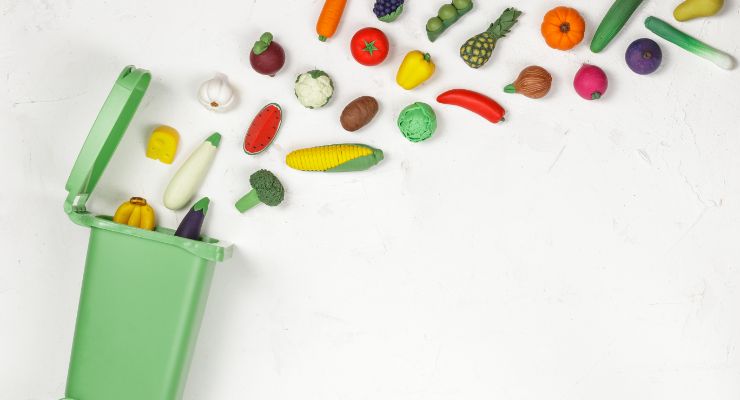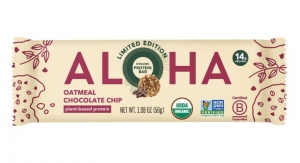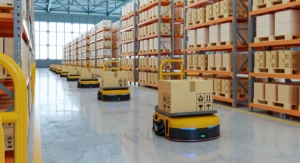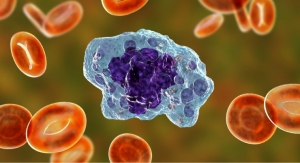By Mike Montemarano, Associate Editor08.30.22
Food waste is a top environmental concern among consumers globally. The USDA estimates that between 30% and 40% of the U.S. food supply ends up in landfills. Once there, food waste releases methane into the atmosphere as it breaks down, accounting for approximately 8-10% of all human-caused greenhouse gas emissions, according to a report published by the Intergovernmental Panel on Climate Change (IPCC).
Beyond the actions that restaurants and consumers can take by handling food more conscientiously, innovations along the agricultural supply chain can reduce waste. Several companies have found ways to redirect agricultural products from waste streams to develop novel food products, an innovative approach known as upcycling.
With growing momentum behind the upcycling movement, the Upcycled Foods Association (UFA) was born. Founded in 2018, the organization provides the food industry with a third-party-validated certification for upcycled products.
Turner Wyatt, co-founder and CEO of UFA, spoke with Nutraceuticals World about the practice of upcycling, its ascent into the mainstream, and how best to drive this sustainable practice forward across product categories.
A Call to Action
Wyatt ventured into the concept of upcycling as the co-founder of Denver Food Rescue, a nonprofit that brought food—otherwise destined to be wasted—to low-income families.
“A common issue among these organizations is that they’re totally cash-strapped, and often have waste of their own because they’re often treated as a disposal organization for these larger food companies, and are responsible for moving millions of tons of waste,” Wyatt said. “We thought to solve both problems by taking excess and upcycling it into new products, which helped to make the organization more self-sufficient and more efficiently reduced food waste. That organization is still out there thriving, but we also realized there were a huge group of businesses doing it for profit, and turning byproduct streams from agriculture into commercial products.”
Companies that are for-profit, Wyatt said, are able to scale at a much faster rate, which is essential to meeting the United Nations Sustainable Development Goal (SDG) to halve food waste by 2030, an effort that will require a reduction of roughly 1 billion tons of food waste.
Traditional market forces behind upcycling could become a critical factor in reducing food waste, and thus, Wyatt and other leadership from startup companies decided to found UFA with a mission to create a centralized, third-party organization that could standardize the practice of what would later be more widely known as upcycling.
“We’re a large membership network of hundreds of global businesses supporting each other to grow business and drive critical investment, and we’re seeing a large amount of venture capital and private equity investment going into our industry, as well as into consumer education,” Wyatt said. “One of the biggest barriers to upcycling is that people don’t know about it. Right now, less than 10% of consumers know what upcycling is. But using these broad, systematic industry initiatives, we’re seeking to accelerate demand for upcycled products and ultimately prevent more food waste.”
Global food waste is more than an environmental issue; it is a substantial resource that is on the table for innovators to commercialize, Wyatt noted. “The Food and Agriculture Organization (FAO) of the United Nations estimates that global food waste is worth about 940 billion dollars per year. Another study by Boston Consulting found it was about $1.2 trillion,” Wyatt said. “If there were a trillion dollars’ worth of oil leaking out of a pipeline every year, you can be sure that oil companies would find a way to capture that. But the food and supplement industries haven’t done it yet.”
Future Market Insights has estimated that the CAGR of the food waste industry is over 6%, projecting the industry will have a market value of $119 billion by 2030, twice as much as it is today, Wyatt noted. “A projected doubling in growth is a huge indicator that this is a smart place to make investments and it might not seem right now that, as a supplement company, this is a place for you to play, but it is.”
Creating Recognition
UFA’s Upcycled Certified program seeks to foster consumer awareness behind upcycled products, Wyatt said, by ensuring adherence to a verification program. The certification also showcases to consumers how many tons of food waste a company prevents.
“Ninety-five percent of consumers are willing to do something in their lives in order to prevent food waste,” Wyatt noted. “By quantifying that impact, in terms of having a third-party verified number, that gives you a really strong selling point that will increase a consumer’s willingness to pay for your product.”
Meanwhile, 62% of consumers are willing to pay more for a product that prevents food waste, which is more than the percentage of consumers that would pay more for a product that uses recycled plastic packaging, he added.
“Even though there’s an all-out war on plastic right now, more people are willing to pay more for a product that prevents food waste. We’re unlocking that strong consumer demand by educating consumers about what upcycling is, and allowing brands to showcase their climate solution through how much food waste they’re preventing. We also get the opportunity to quantify the impact of the entire industry.”
On that note, between the 40 certified companies, about 250 products cumulatively are preventing more than 840 million pounds of food waste each year, Wyatt said.
Data indicate that as awareness grows, so too will the size of the upcycled products market. For instance, 70% of consumers aware of the Upcycled Certified label said it makes them more likely to purchase a product, according to the Hartman Group.
Additionally, market research company SPINS has begun tracking Upcycled Certified products. Between Q1 2021 and Q1 2022, upcycled certified products grew in sales by more than 1,046% in the natural retail channel, and over 400% in the conventional retail channel.
“This is huge growth, and I hope it demonstrates that it is a wise decision from a sales perspective to get upcycled certified because it’s what consumers and retailers are looking for,” Wyatt said.
Opportunity for Dietary Supplements
There is a large window of opportunity for nutraceutical companies to stake their claim with upcycled positioning, according to Wyatt.
“Within Upcycled Certified, we have a specific category of certification for dietary supplements,” he said. “While most are food products, there’s huge opportunity for expansion and we’re working toward having an upcycled product in every aisle of the grocery store. Nutraceutical companies can pick up an upcycled ingredient overnight by replacing a conventional ingredient with an upcycled one that’s analogous, and by getting that ingredient, they’ll get a quantified number for how many pounds of food waste they’re preventing. While only 40 companies have been certified to date, 140 companies are in the certification process, so our list of upcycled ingredients will become more useful over time to the nutraceuticals industry.”
Certification entails a process that involves UFA’s certifying body, Where Food Comes From, and tends to take a few months, according to Wyatt. However, some companies have been certified within a week.
“What they ultimately determine is that there is enough of an upcycled ingredient within a product to allow it to have a meaningful impact on food waste prevention. Once you get through that process, you can add the Upcycled Certified mark to your packaging,” Wyatt said.
Beyond the actions that restaurants and consumers can take by handling food more conscientiously, innovations along the agricultural supply chain can reduce waste. Several companies have found ways to redirect agricultural products from waste streams to develop novel food products, an innovative approach known as upcycling.
With growing momentum behind the upcycling movement, the Upcycled Foods Association (UFA) was born. Founded in 2018, the organization provides the food industry with a third-party-validated certification for upcycled products.
Turner Wyatt, co-founder and CEO of UFA, spoke with Nutraceuticals World about the practice of upcycling, its ascent into the mainstream, and how best to drive this sustainable practice forward across product categories.
A Call to Action
Wyatt ventured into the concept of upcycling as the co-founder of Denver Food Rescue, a nonprofit that brought food—otherwise destined to be wasted—to low-income families.
“A common issue among these organizations is that they’re totally cash-strapped, and often have waste of their own because they’re often treated as a disposal organization for these larger food companies, and are responsible for moving millions of tons of waste,” Wyatt said. “We thought to solve both problems by taking excess and upcycling it into new products, which helped to make the organization more self-sufficient and more efficiently reduced food waste. That organization is still out there thriving, but we also realized there were a huge group of businesses doing it for profit, and turning byproduct streams from agriculture into commercial products.”
Companies that are for-profit, Wyatt said, are able to scale at a much faster rate, which is essential to meeting the United Nations Sustainable Development Goal (SDG) to halve food waste by 2030, an effort that will require a reduction of roughly 1 billion tons of food waste.
Traditional market forces behind upcycling could become a critical factor in reducing food waste, and thus, Wyatt and other leadership from startup companies decided to found UFA with a mission to create a centralized, third-party organization that could standardize the practice of what would later be more widely known as upcycling.
“We’re a large membership network of hundreds of global businesses supporting each other to grow business and drive critical investment, and we’re seeing a large amount of venture capital and private equity investment going into our industry, as well as into consumer education,” Wyatt said. “One of the biggest barriers to upcycling is that people don’t know about it. Right now, less than 10% of consumers know what upcycling is. But using these broad, systematic industry initiatives, we’re seeking to accelerate demand for upcycled products and ultimately prevent more food waste.”
Global food waste is more than an environmental issue; it is a substantial resource that is on the table for innovators to commercialize, Wyatt noted. “The Food and Agriculture Organization (FAO) of the United Nations estimates that global food waste is worth about 940 billion dollars per year. Another study by Boston Consulting found it was about $1.2 trillion,” Wyatt said. “If there were a trillion dollars’ worth of oil leaking out of a pipeline every year, you can be sure that oil companies would find a way to capture that. But the food and supplement industries haven’t done it yet.”
Future Market Insights has estimated that the CAGR of the food waste industry is over 6%, projecting the industry will have a market value of $119 billion by 2030, twice as much as it is today, Wyatt noted. “A projected doubling in growth is a huge indicator that this is a smart place to make investments and it might not seem right now that, as a supplement company, this is a place for you to play, but it is.”
Creating Recognition
UFA’s Upcycled Certified program seeks to foster consumer awareness behind upcycled products, Wyatt said, by ensuring adherence to a verification program. The certification also showcases to consumers how many tons of food waste a company prevents.
“Ninety-five percent of consumers are willing to do something in their lives in order to prevent food waste,” Wyatt noted. “By quantifying that impact, in terms of having a third-party verified number, that gives you a really strong selling point that will increase a consumer’s willingness to pay for your product.”
Meanwhile, 62% of consumers are willing to pay more for a product that prevents food waste, which is more than the percentage of consumers that would pay more for a product that uses recycled plastic packaging, he added.
“Even though there’s an all-out war on plastic right now, more people are willing to pay more for a product that prevents food waste. We’re unlocking that strong consumer demand by educating consumers about what upcycling is, and allowing brands to showcase their climate solution through how much food waste they’re preventing. We also get the opportunity to quantify the impact of the entire industry.”
On that note, between the 40 certified companies, about 250 products cumulatively are preventing more than 840 million pounds of food waste each year, Wyatt said.
Data indicate that as awareness grows, so too will the size of the upcycled products market. For instance, 70% of consumers aware of the Upcycled Certified label said it makes them more likely to purchase a product, according to the Hartman Group.
Additionally, market research company SPINS has begun tracking Upcycled Certified products. Between Q1 2021 and Q1 2022, upcycled certified products grew in sales by more than 1,046% in the natural retail channel, and over 400% in the conventional retail channel.
“This is huge growth, and I hope it demonstrates that it is a wise decision from a sales perspective to get upcycled certified because it’s what consumers and retailers are looking for,” Wyatt said.
Opportunity for Dietary Supplements
There is a large window of opportunity for nutraceutical companies to stake their claim with upcycled positioning, according to Wyatt.
“Within Upcycled Certified, we have a specific category of certification for dietary supplements,” he said. “While most are food products, there’s huge opportunity for expansion and we’re working toward having an upcycled product in every aisle of the grocery store. Nutraceutical companies can pick up an upcycled ingredient overnight by replacing a conventional ingredient with an upcycled one that’s analogous, and by getting that ingredient, they’ll get a quantified number for how many pounds of food waste they’re preventing. While only 40 companies have been certified to date, 140 companies are in the certification process, so our list of upcycled ingredients will become more useful over time to the nutraceuticals industry.”
Certification entails a process that involves UFA’s certifying body, Where Food Comes From, and tends to take a few months, according to Wyatt. However, some companies have been certified within a week.
“What they ultimately determine is that there is enough of an upcycled ingredient within a product to allow it to have a meaningful impact on food waste prevention. Once you get through that process, you can add the Upcycled Certified mark to your packaging,” Wyatt said.




























